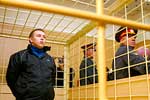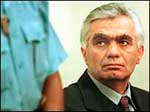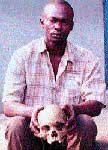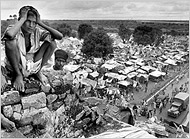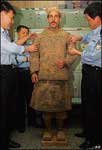The New Yorker:
In 2002, Abu Musab al-Suri, in his hideout in Iran, began writing his defining work, “Call for Worldwide Islamic Resistance,” which is sixteen hundred pages long and was published on the Internet in December, 2004. Didactic and repetitive, but also ruthlessly candid, the book dissects the faults of the jihadi movement and lays out a plan for the future of the struggle. The goal, he writes, is “to bring about the largest number of human and material casualties possible for America and its allies.” He specifically targets Jews, “Westerners in general,” the members of the NATO alliance, Russia, China, atheists, pagans, and hypocrites, as well as “any type of external enemy.” (The proliferation of adversaries mirrors Al Qaeda’s hatred of all other ideologies.
And yet, at the same time, he bitterly blames Al Qaeda for dragging the entire jihadi movement into an unequal battle that it is likely to lose. Unlike most jihadi theorists, Suri acknowledges the setback caused by September 11th. He laments the demise of the Taliban, which he and other Salafi jihadis considered the modern world’s only true Islamic government. America’s “war on terror,” he complains, doesn’t discriminate between Al Qaeda adherents and Muslims in general. “Many loyal Muslims,” he writes, believe that the September 11th attacks “justified the American assault and have given it a legitimate rationale for reoccupying the Islamic world.” But Suri goes on to argue that America’s plans for international domination were already evident “in the likes of Nixon and Kissinger,” and that this agenda would have been pursued without the provocation of September 11th.
Moreover, the American attack on Afghanistan was not really aimed at capturing or killing bin Laden; its true goal was to sweep away the Taliban and eliminate the rule of Islamic law.
In Suri’s view, the underground terrorist movement—that is, Al Qaeda and its sleeper cells—is defunct. This approach was “a failure on all fronts,” because of its inability to achieve military victory or to rally the Muslim people to its cause. He proposes that the next stage of jihad will be characterized by terrorism created by individuals or small autonomous groups (what he terms “leaderless resistance”), which will wear down the enemy and prepare the ground for the far more ambitious aim of waging war on “open fronts”—an outright struggle for territory. He explains, “Without confrontation in the field and seizing control of the land, we cannot establish a state, which is the strategic goal of the resistance.”
Here.

